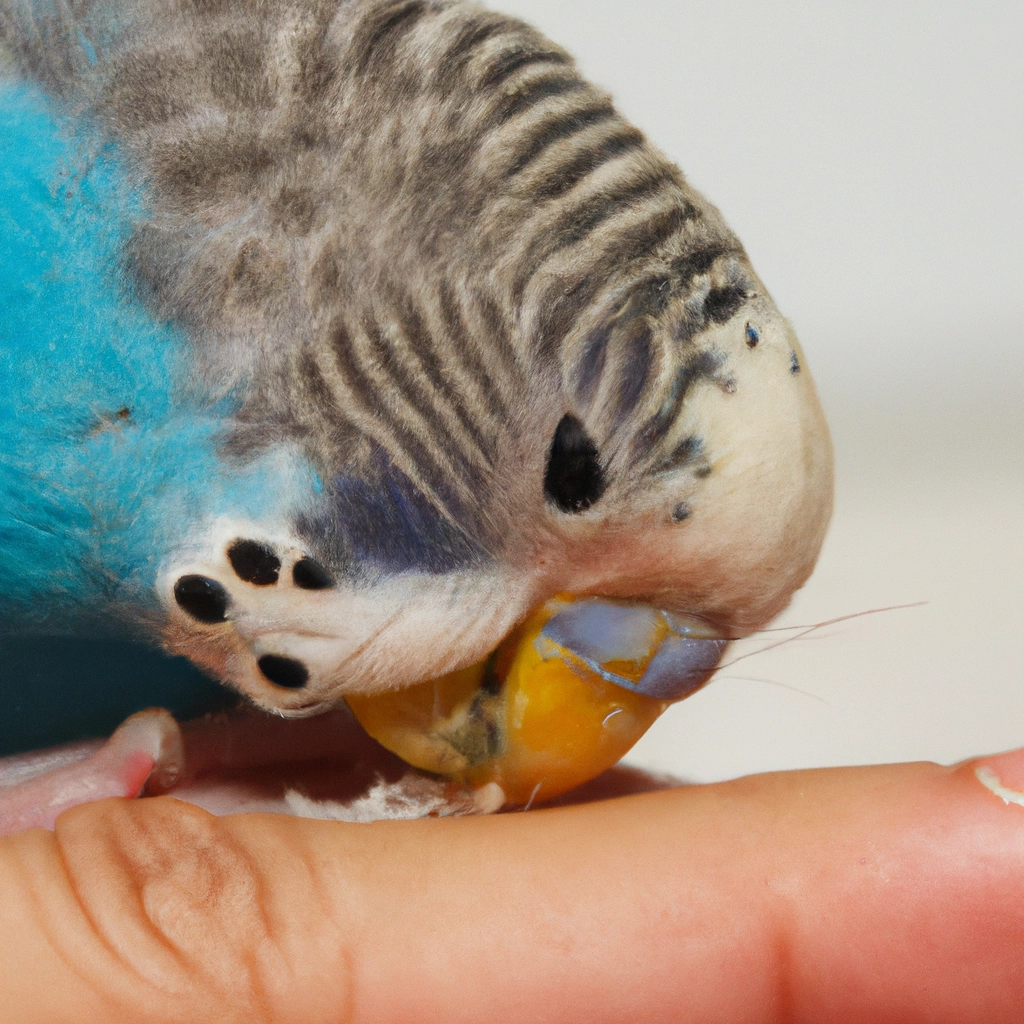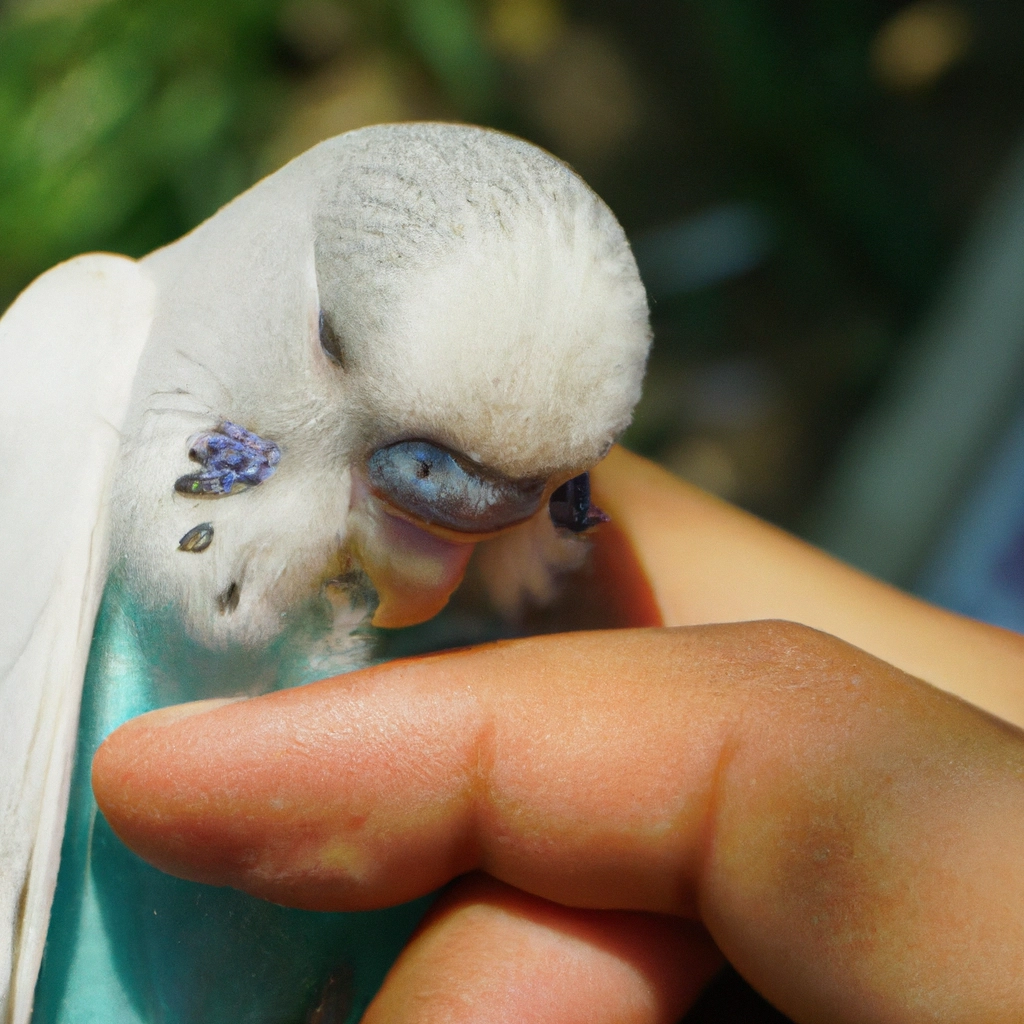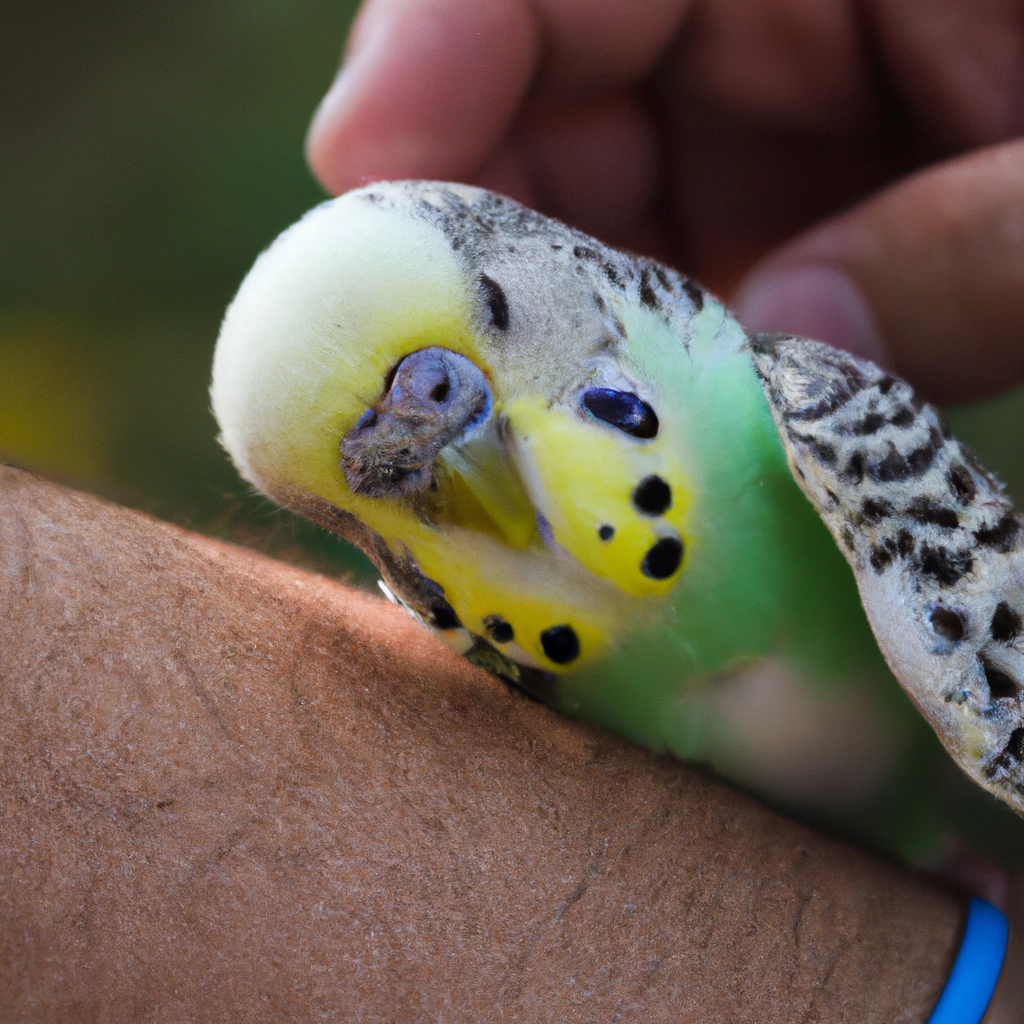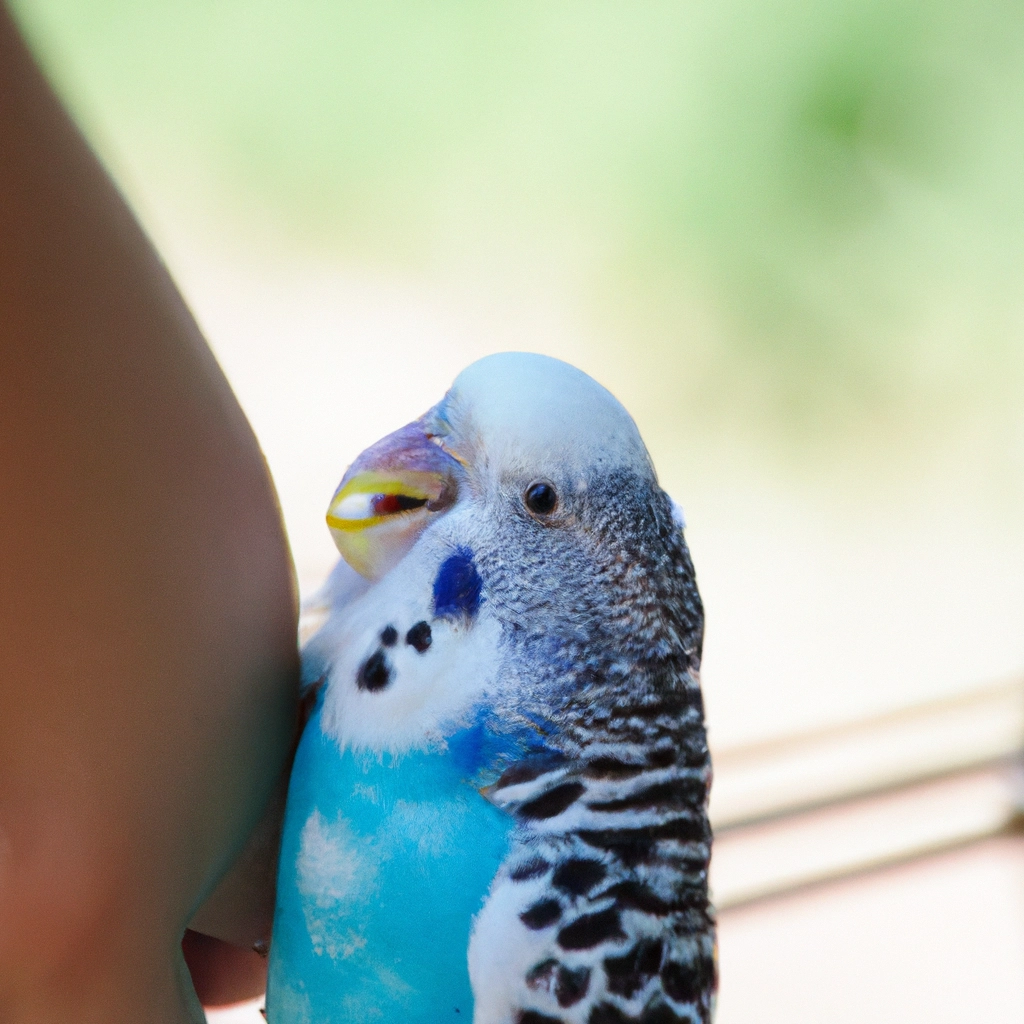| Bite Severity | Description |
|---|---|
| Light | May feel like a pinch; usually does not break the skin |
| Moderate | Can break the skin and cause bleeding; may require first aid |
| Severe | Inflicts deep wounds; medical attention may be necessary |
| Location | Budgies usually bite fingers or hands |
| Causes | Stress, fear, feeling threatened, or discomfort can lead to biting behavior |
Picture this: a vibrant green budgie, perched contentedly on my finger, tilting its head to peek at me curiously. That was my first delightful interaction with these feathered friends. You might have pondered over the question of whether those adorable beaks could possibly bring a sting of pain. Well, I’m here with all the chirps and squawks on the matter, ready to dive into a bird’s eye view of the biting habits of budgies.
The aim here isn’t just to recount tales of nips and gnaws. I’m fluttering by to unravel the world of budgie behavior, share how I’ve managed their sometimes sharp affections, and equip you with the savvy to handle your own interactions with these tiny parrots. So buckle up, and let’s embark on a flight through personal budgie anecdotes and insights.
What I bring to the nest today is not just stories, but tried-and-true advice acquired from my time with these creatures. We’ll explore the oft-asked ‘can budgie bites hurt’, without resorting to the cliche. Shall we?
Understanding Budgie Behavior
The colorful world of budgies is filled with chatters and flutters which is more than just avian antics; it’s their language. Budgies ‘talk’ through their body movements and vocalizations, and yes, sometimes through a love bite or two. Bites can be their quirky way of saying, ‘Hey, human, pay attention!’
Recalling my initial encounter with a budgie’s bite, it was more of a surprise than pain. The tiny pressure from its beak was their method of exploration. Although bewildered, I soon realized this was their way of examining their new human perch. Bites also spring from excitement, fear, or the need for personal space.
A personal takeaway from these feathery pinchers: understanding is key. Knowing what triggers your budgie can help prevent any unwelcome nibbles. Getting versed in their quirky code can turn a seemingly cantankerous peck into a mutual understanding.
Managing Budgie Bites
Let’s ruffle some feathers with the notion that a budgie’s nibble can be managed with a little patience and training. The cornerstone is effectively communicating with your winged buddy. Proper training, coupled with understanding their body language, can drastically reduce instances of biting.
Training my own budgie to be less nippy was a testament to gentle persistence. I rewarded calm behavior and soon noticed a decrease in their inclination to nibble. Our bond strengthened, and it became clear that with patience and consistent training, bite-free interactions are possible.
When a bite does happen, a cool, calm, and collected response is your best bet. No yelps or jerky movements – just a gentle “no” can get the message across. Through these experiences, I’ve learned techniques to handle their bites in a way that’s painless for both parties involved.
Impact of Budgie Bites
The bite of a budgie is often more shocking than painful. Their small beaks aren’t designed to cause significant harm, especially when compared to larger parrots. However, that doesn’t mean a surprise pinch won’t make you jump!
After one memorable peck that caught me off-guard, I found myself nursing a tiny red mark. It was a stark reminder that even the smallest of our feathered friends demand respect. But with a sprinkle of understanding and a dash of care, these incidents have become rare anecdotes.
If you find yourself on the receiving end of a budgie’s beak, remember my tips: stay calm and gently discourage the behavior. I’ve found that over time, my reactions have taught my budgies that biting isn’t the best way to communicate with their human.
Conclusion
As we perch on the conclusion of our budgie biting saga, I hope my feather-filled tales and tidbits have shed some light on the subject. Budgies, like any bird, have their unique way of expressing themselves, which occasionally includes nibbles and nips.
From a cozy bird’s nest view, I’d chirp that budgie bites don’t have to hurt, either physically or emotionally. With understanding, training, and responsive handling, you’ll find that nip in the bud can blossom into a beautiful bond. So, to all the budgie enthusiasts out there, take heart and take heed of the little lessons these birds bring.
And now, dear reader, I extend the perch to you. Do you have feathery tales or savvy tips about your encounters with budgies? Let’s continue the conversation and spread the wings of wisdom in the lovely world of budgies. Share your own experiences and let’s chirp together in harmony!
Frequently Asked Question
-
How can I prevent budgies from biting?
To prevent budgies from biting, it’s important to understand their body language and behavior. Avoid sudden movements or loud noises around them, as this can startle and stress them out, leading to potential biting. Additionally, spend time taming and training your budgie using positive reinforcement techniques such as offering treats and speaking to them in a soothing voice. Building trust and a bond with your budgie can help reduce their tendency to bite. It’s also crucial to provide them with enough mental and physical stimulation through toys, perches, and regular out-of-cage time to prevent boredom, which can lead to nipping or biting behavior. Lastly, if your budgie does bite, it’s essential to remain calm and avoid reacting aggressively, as this can reinforce the behavior.
In summary, preventing budgies from biting involves being attentive to their needs, providing positive reinforcement training, and creating a stress-free environment for them to thrive in. By understanding their behavior and building trust, you can minimize the likelihood of your budgie resorting to biting as a form of communication or defense.



